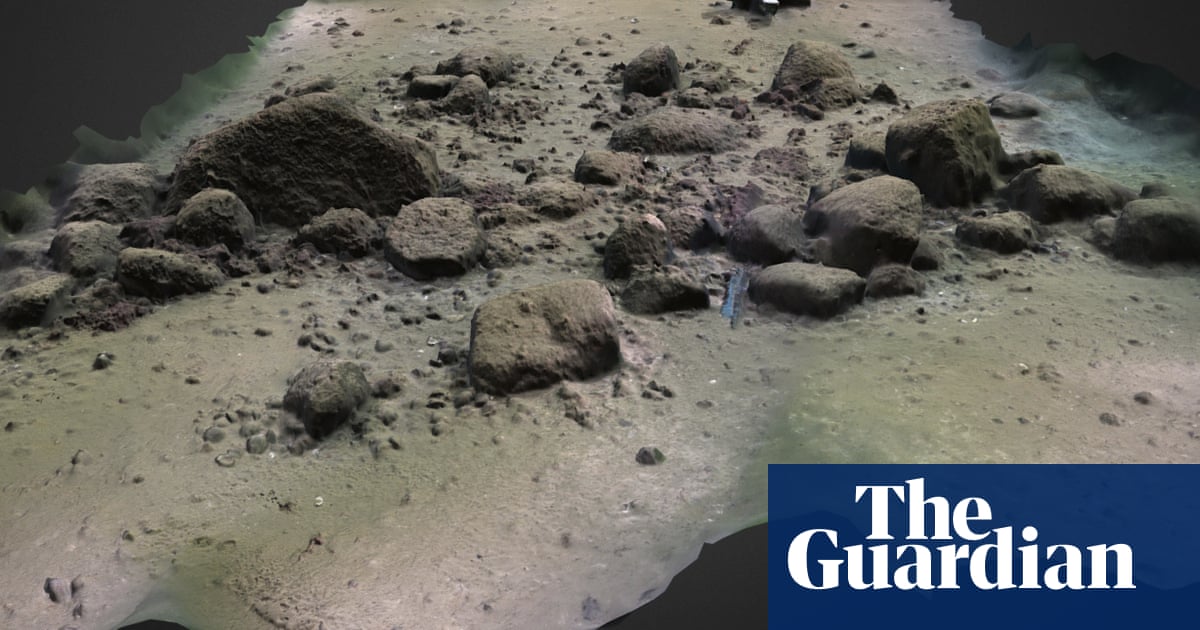- cross-posted to:
- history@lemmy.world
- cross-posted to:
- history@lemmy.world
A stone age wall discovered beneath the waves off Germany’s Baltic coast may be the oldest known megastructure built by humans in Europe, researchers say.
The wall, which stretches for nearly a kilometre along the seafloor in the Bay of Mecklenburg, was spotted by accident when scientists operated a multibeam sonar system from a research vessel on a student trip about 10km (six miles) offshore.
Closer inspection of the structure, named the Blinkerwall, revealed about 1,400 smaller stones that appear to have been positioned to connect nearly 300 larger boulders, many of which were too heavy for groups of humans to have moved.
The submerged wall, described as a “thrilling discovery”, is covered by 21 metres of water, but researchers believe it was constructed by hunter-gatherers on land next to a lake or marsh more than 10,000 years ago.
While the purpose of the wall is hard to prove, scientists suspect it served as a driving lane for hunters in pursuit of herds of reindeer.



The glacier would move the stones if it would have been built before ice age. The big stones were most probably left there by the glacier and the wall was built after it receded.